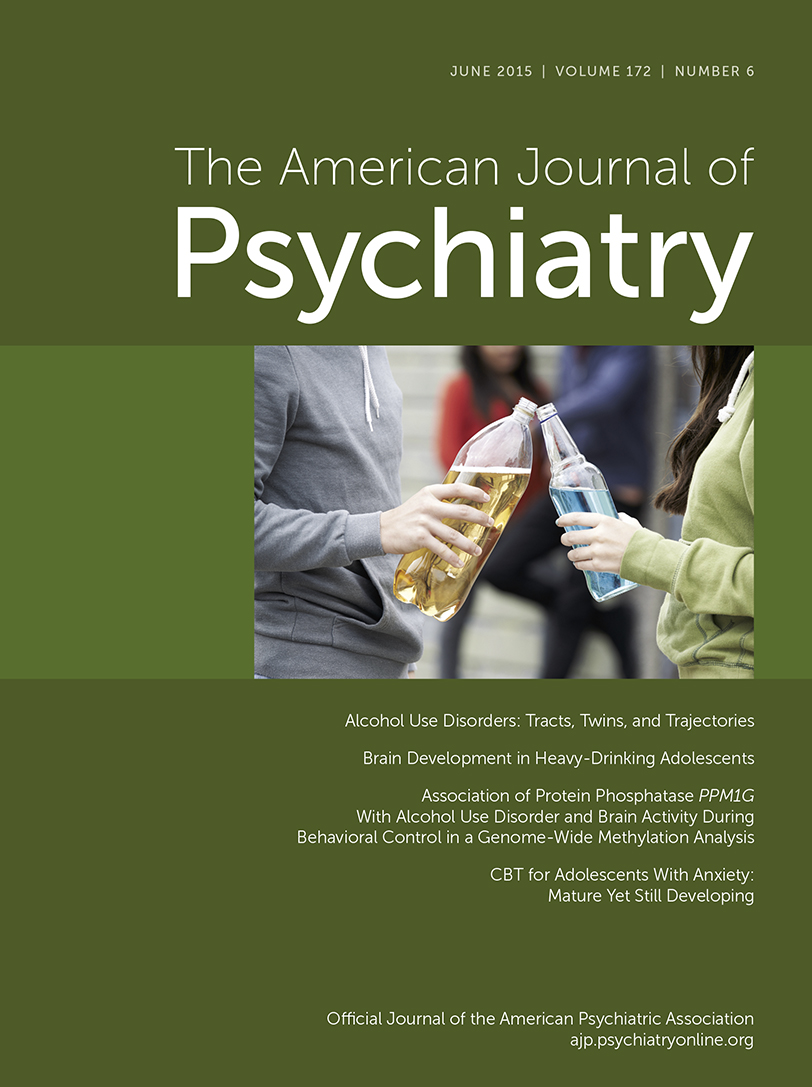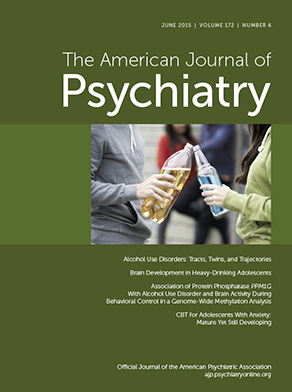T
o the E
ditor: While impressed with the creativity of the study by Alexander Viktorin, M.Sc., et al. (
1), published in the October 2014 issue of the
Journal, regarding the risk of transition to mania during antidepressant treatment in bipolar I disorder, we disagree with their conclusions, especially the conclusion that antidepressants are associated with mania.
We disagree that there is “an increased risk of manic switch among patients with bipolar disorder on antidepressant monotherapy.” The authors report a hazard ratio of 2.83 for mania in patients taking antidepressants alone compared with those taking antidepressants with a mood stabilizer. With an uncorrected p value of 0.028 for the hazard ratio (and multiple hypothesis tests), the event rate is so low as to leave great uncertainty about whether this is a true effect and what is its actual magnitude. On closer examination, the increase in
absolute risk associated with antidepressant monotherapy in this study is small and not likely clinically significant. Of 1,117 patients, only 10 additional cases of mania were found during monotherapy antidepressant treatment compared with the period without antidepressant treatment, a 0.9% increase in absolute risk. Using the number needed to harm, 112 patients would need to be treated with monotherapy antidepressants before a single one would develop mania. This would be considered insignificant even in a well-controlled, randomized trial. For comparison, the number needed to harm for metabolic abnormalities associated with atypical antipsychotics (often used for bipolar depression) has been estimated at 6 for quetiapine and 10 for olanzapine/fluoxetine (
2). While evidence of efficacy in bipolar depression for some atypical antipsychotics is much more substantial than that for antidepressants, so are their risks.
Furthermore, if one is to conclude from this study that monotherapy antidepressants increase mania risk in bipolar I disorder patients, then one must also conclude that antidepressants are protective against mania. After all, with a hazard ratio of 0.68, the risk of mania for patients taking antidepressants long-term compared with those not taking antidepressants was actually reduced by 32%.
It is argued that the within-subjects design controls for confounding, but this assumes that the pattern of illness remains constant over time within any patient. These results may still represent confounding by indication. Registries and electronic health records represent powerful but not infallible tools for pharmacovigilance; confounding must be considered in any nonrandomized design.
Perhaps confirmation bias inadvertently led the authors to interpret their data in line with what is already conventional wisdom: that antidepressants increased risk of mania—and to deemphasize the much stronger association that they report in their study: that antidepressant use in bipolar I disorder prevents mania. Examining the same data, we conclude that neither finding is likely related to the properties of antidepressants themselves. The data certainly do not support the notion that monotherapy antidepressant treatment is unsafe in bipolar I disorder. The risks (or benefits) of antidepressant use in bipolar I disorder, particularly relative to potentially more harmful strategies, remain uncertain.

